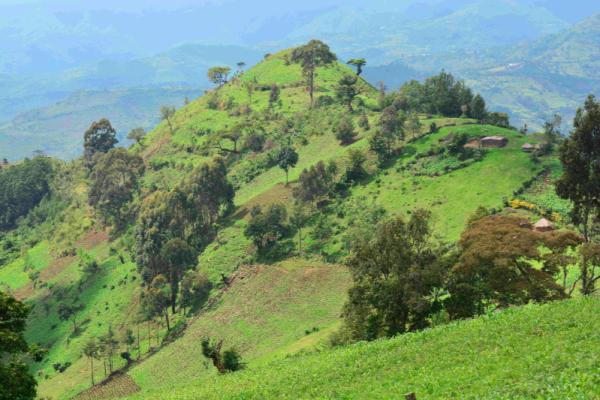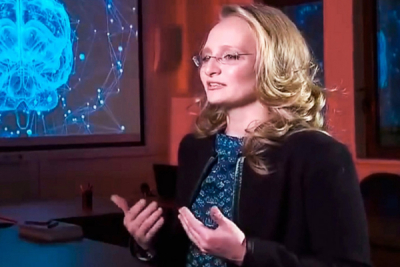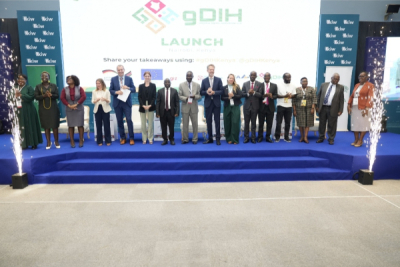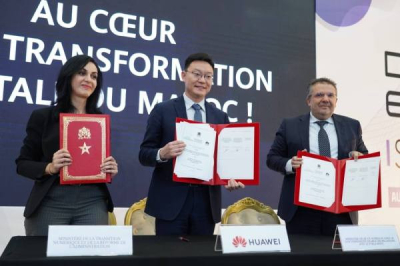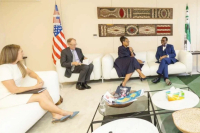
Tech (808)
Digital transformation is positively impacting key sectors of the economy, notably in Africa with sectors like agriculture and finance. To further capitalize on its opportunities, African countries are actively invested in initiatives such as innovation support schemes that aim to encourage innovation and entrepreneurship.
Last week, the Tanzanian and Moroccan governments launched a satellite-based system for the digital collection of agricultural harvest data. The launch took place at the Tanzanian Agricultural Research Institute's (TARI) Uyole center in Mbeya, Tanzania.
The new system, which costs more than a billion Tanzanian shillings (around $399,202), should enable better estimates of agricultural yields and cultivated areas.
The system works by using smartphones equipped with satellite connectivity to collect data from "white zones," which are areas with limited or no internet access. These zones are home to most of Tanzania's agricultural regions.
The data collected by the smartphones will be used to monitor crops from germination to harvest. This will allow the Tanzanian government to have more accurate statistics on agricultural production.
"The aim is to have actual statistics of what we produce in every farming season," explained Fredrick Mlowe, a soil expert at the TARI center in Uyole. "Our officers used to predict the amount of crops to be harvested, a practice that is now phasing out as we are switching to digitalization,” headded
Tanzania is hoping that the new system will help to make agriculture a key sector for its economic development. In the age of the technological revolution, digitization is seen as a mandatory step for improving agricultural statistics. This, in turn, will enable the government to have a clearer vision of food security, monitor crop prices, identify production basins, provide financial support to farmers, and anticipate food shortages.
Adoni Conrad Quenum
As the digital revolution sweeps across every field, new technologies are emerging to revolutionize the way people work. In the agriculture sector, one of the promising technologies is artificial intelligence, which is poised to greatly transform the sector by for instance helping optimize resource usage and minimize waste.
On Friday, December 1st, British pharmaceutical giant AstraZeneca announced a reforestation initiative in Kenya. Unveiled during COP28 in Dubai, the project aims to plant six million trees and leverage the power of artificial intelligence to monitor their growth and health.
Kenya's Rift Valley will be the heart of this initiative, spanning six counties and encompassing over 3,500 hectares of land. Experts will utilize a deep learning AI model to analyze drone and satellite imagery, tracking each tree's progress and quantifying carbon sequestration levels.
"Investing in our natural world through tree planting and conservation, and limiting deforestation, are some of the most effective preventative health steps we can take. By expanding AZ Forest to Kenya, we are progressing our commitment to deliver reforestation at scale, with a science-led approach that benefits both the environment and local communities," said Juliette White, AstraZeneca Vice President of Global Sustainability.
This initiative forms part of AstraZeneca's global "AZ Forest" program, launched in 2020 to plant and nurture 200 million trees –in partnership with landscape restoration specialists– across six continents by 2030.
Beyond Kenya, "AZ Forest" has planted nearly 3 million trees in Ghana this year alone, bringing their total to over 4 million since 2021. Rwanda is next in line, with a target of 5.8 million trees on 21,000 hectares in the coming months.
Samira Njoya
The African continent is undergoing a profound transformation of both its public services and its economy, driven by the rapid adoption of ICT. However, harnessing the full potential of these cutting-edge technologies requires the expertise and guidance of well-informed professionals.
Russia plans to enhance its ICT collaboration with African countries. As part of this effort, leading figures from some 36 African nations have been invited to Moscow this month to connect with Russian tech specialists and investors.
The initiative, spearheaded by Katerina Vladimirovna Tikhonova (pictured above), daughter of the Russian President, aims to support Africa's development of digital governance services, including cybersecurity, digitization of public services, and electronic voting. The initiative is being driven through a center affiliated with the Russian Foundation for Intellectual Development.
This effort falls under an awareness-raising project titled "e-Governance Knowledge Sharing Program," which was launched in July by the foundation in partnership with the Moscow Higher School of Economics.
Through this initiative, participating African countries will gain access to Russia's advanced expertise in providing digital services to citizens. According to international experts, Russia ranks among the most advanced countries in the digitization of public services. The country is ranked 42nd in this area out of 193 countries by the UN.
In terms of e-voting, Russia is currently testing a digital platform that will be used for the presidential election in 2024. This presents an opportunity for African countries to familiarize themselves with this innovation, which is still gaining traction on the continent. As a result of this working visit and the ensuing partnerships, African countries will also enhance their cybersecurity capabilities. Notably, in the wake of the conflict between Russia and Ukraine, the country has been actively developing solutions to strengthen its cyberspace.
Samira Njoya
To ensure the success of its digital transition program, Algeria needs a skilled workforce. For that purpose, the government wants to implement programs to match students’ skills to the demands of the job market.
The Algerian Ministry of Higher Education and Scientific Research has inked a partnership agreement with Huawei, a global leader in ICT equipment and infrastructure. The agreement, signed on November 28, 2023, aims to equip universities and colleges with cutting-edge technology while bolstering the digital skills of students and faculty. According to local media outlet Agence algérienne de presse, it was initialled by the Ministry's Secretary General, Abdelhakim Bentellis, and Huawei Algeria Vice President Alex Zhang Chang
Under the terms of the agreement, Huawei will provide six universities with state-of-the-art smart classrooms, enabling students to access world-class educational programs. Additionally, the company will collaborate with the Ministry to develop comprehensive training programs for teachers and students, focusing on in-demand digital skills such as artificial intelligence and cloud computing.
This strategic partnership aligns with the Ministry's vision of modernizing Algeria's higher education system and ensuring that students are equipped with the skills necessary to thrive in the digital era. The initiative builds upon the recent launch of 46 digital platforms designed to enhance the digital literacy of students and teachers, demonstrating the government's unwavering commitment to transforming the education sector.
Samira Njoya
Kenya is making significant strides to solidify its position as the preeminent technology hub in East Africa. To achieve this ambitious goal, the country is forging strategic partnerships with key technical partners.
Kenya launched the Green and Digital Innovation Hub Kenya (gDIH) on Tuesday, November 28, during Kenya Innovation Week. The initiative, spearheaded by the Digital Transformation Centre of the German International Development Cooperation Agency (GIZ) in Kenya, aims to empower micro, small, and medium-sized enterprises (MSMEs) with the necessary technology and innovation resources to navigate the digital transformation journey and enhance their participation in the country's digital economy while adhering to green principles.
"As the digital economy evolves and competition becomes more intense, the hub stands as a distinctive platform for MSMEs to level the playing field, ensuring equitable access to digital innovation opportunities for all MSMEs in Kenya, irrespective of their geographical location," emphasized Bernd Lakemeier, GIZ Kenya’s Director of Programs Sustainable Economic Development Cluster.
The hub's activities will focus on fostering innovation in the agriculture, information and communication technology, and energy sectors, leveraging cutting-edge technologies such as artificial intelligence, the Internet of Things, cybersecurity/IT security, cloud computing, and smart cities. The promoters envision the gDIH becoming a major technology hub in the country, further strengthening Kenya's already robust technology landscape on a continental scale.
Commenting on the launch of gDIH, Prof. Tom Ogada, the Team Lead of the ACTS consortium said: “Embedding a green ethos into technological advancements holds substantial implications for Kenya’s sustainable development and economic growth. By fostering collaborations with diverse stakeholders and organizations, we are committed to extending the Hub’s influence beyond Nairobi to encompass all 47 counties, facilitating linkages to expertise, markets, and access to capital beyond the borders of our nation.”
Adoni Conrad Quenum
Driven by an unwavering commitment to harnessing the transformative power of technology for the country's progress, the Moroccan government is actively fostering robust collaborations with key players in the technology sector. These strategic partnerships are expected to yield promising spin-offs in the years to come.
Morocco and Huawei recently announced a partnership to collaborate on a range of digital transformation projects. The partnership was formalized through the signing of three memorandums of understanding (MoUs) during the 2nd Digitech Ecosystem Summit held in Essaouira, Morocco.
They focus on the digitization of services, ICT training and skills development, and digital inclusion.
"The launch of the second edition of the 'Digitech Ecosystem Summit' forum, born of the convergence of the visions of all our partners, emphasizes the importance of strengthening digital skills and consolidating, in fine, the public-private partnership, considered to be a real lever for boosting the national digital economy," said David Li, Managing Director of Huawei Morocco.
The first agreement, a tripartite collaboration, involves Huawei, the Ministry in charge of Relations with Parliament and the Ministry of Digital Transition. It focuses on strengthening ICT skills, for the benefit of the Ministry's civil servants, its partners, and selected civil society associations.
The second agreement initiated between Huawei and the Essaouira Mogador Association for Essaouira Province aims to stimulate innovation, foster digital skills at the community level, and promote economic growth in the region.
The third partnership, signed with the Foundation for Research, Development, and Innovation in Science and Engineering (FRDISI), will train and certify students and teachers at the SUPTECH Santé school in Essaouira and Mohammedia in technological fields, to take advantage of Huawei's Digitech Talent program.
According to a Huawei press release, the signing of these agreements is in line with the tech giant's vision to be a catalyst for training, development, and digital innovation in Morocco. It comes at a time when Morocco is stepping up its digital projects to become a benchmark technology hub in Africa by 2025.
Samira Njoya
Dedicated to fostering the development of African nations, the African Development Bank (AfDB) is expanding its network of partnerships to empower Africa to fully harness the potential of emerging technologies.
On Monday, November 27, the African Development Bank (AfDB) announced a strategic partnership with the US Commercial Service, a global network of trade experts dedicated to promoting foreign direct investment in the United States. This collaboration, unveiled during the Africa Tech Festival in Cape Town, South Africa, aims to foster a series of dialogues on how US digital innovation can contribute to achieving development goals in Africa.
"We are at a turning point in Africa's technological advancement. By bridging insights from the U.S. private sector with Africa's vibrant markets, we aim to drive innovation and economic growth. This partnership is a testament to that mission," said Ashley Ndir, senior U.S. Commercial Liaison to the African Development Bank.
Under the terms of this partnership, the two parties will explore avenues for African governments to collaborate with US technology companies to advance their economies. Additionally, they will examine how US businesses can capitalize on emerging opportunities in Africa's emerging markets.
Discussions will focus on key themes such as embracing emerging technologies, enhancing internet access, developing digital skills, and establishing a regulatory environment conducive to innovation.
This initiative aligns with the AfDB's digital development strategy, which is designed to support African countries in achieving their digitization goals. As part of this strategy, the AfDB invested $2 billion in digital infrastructure, including “regional and national broadband development, creating favorable policy environments for private sector investments, scaling digital skills, and nurturing innovative enterprises.”
Samira Njoya
In Africa, the healthcare landscape is plagued by a shortage of adequate infrastructure and qualified medical professionals. This severely hinders accessibility and the quality of healthcare services but, with the advent of artificial intelligence (AI), players hope to alleviate those critical challenges.
The International Finance Corporation (IFC), the private sector financing arm of the World Bank Group, recently announced a partnership agreement with Senegalese e-health startup Kera Health Platforms, to address the critical shortage of healthcare professionals and facilities in West Africa. This collaboration aims to leverage technology, particularly artificial intelligence (AI), to enhance healthcare accessibility and outcomes for millions of people across the region.
"As Africa stands on the cusp of a demographic boom, harnessing the power of technology in healthcare is not just an opportunity; it is an imperative.[...] Thanks to this collaboration with IFC, we are poised to accelerate the integration of AI, enhancing healthcare accessibility and outcomes across the continent," said Moustapha Cissé, founder and CEO of Kera Health Platforms.
Under the partnership agreement, IFC will provide financial support to Kera to further develop its AI-powered solutions for managing electronic health records (EHRs), lab results, pharmaceutical data, smart medical records, and health insurance products.
According to IFC officials, the initiative is part of the corporation’s investment strategy to address an insufficient number of healthcare professionals and facilities, as well as low health insurance coverage in Africa. "With its boundless potential, the African continent faces an acute healthcare challenge. It bears the weight of one of the lowest doctor-population ratios in the world, with about 1.5 medical professionals per 1,000 individuals. In Senegal, as of 2020, there was an average of less than one physician per 10,000 people," an IFC release explains.
In such a context, the technology developed through this partnership will significantly improve healthcare delivery at reduced costs by making crucial information readily accessible to patients, healthcare professionals, and other stakeholders.
Samira Njoya
Over the past few years, AI has been the focal point in global tech news. With its ever-expanding applications, there is a growing imperative to consider and address the security aspects associated with its widespread usage.
In a landmark move to bolster the safety of artificial intelligence (AI), 18 countries around the world have signed an agreement outlining a comprehensive framework for developing and deploying secure AI systems. The 20-page document, known as the Guidelines for Secure AI System Development, stipulates that companies involved in the development, deployment, or commercialization of AI must design their systems with inherent security measures to safeguard users and the public from potential harm.
"The release of the Guidelines for Secure AI System Development marks a key milestone in our collective commitment by governments across the world to ensure the development and deployment of artificial intelligence capabilities that are secure by design," said Jen Easterly, Director of the U.S. Cybersecurity and Infrastructure Security Agency (CISA).
This groundbreaking agreement follows three weeks after the inaugural international summit on AI, held from November 1 to 2 at Bletchley Park, England. It demonstrates global leaders’ will to proactively address the challenges and opportunities presented by the rapid advancement of AI technologies.
Beyond the core principle of "secure design," the agreement encompasses a range of recommendations, including Enhanced system security to prevent cyberattacks and unauthorized intrusions, Robust data protection measures to safeguard sensitive information, and Rigorous oversight of software suppliers to ensure compliance with security standards.
The 18 signatory nations include the United States, the United Kingdom, Italy, the Czech Republic, Estonia, Poland, Australia, Chile, Israel, Nigeria, Singapore, Japan, South Korea, Norway, France, New Zealand, Canada, and Germany. Notably, China, a major player in AI development, was excluded from the agreement due to ongoing U.S. sanctions.
Samira Njoya
Africa's digital economy is poised to reach a staggering $712 billion by 2050, accounting for 8.5% of the continent's GDP. This prospect justifies the implementation of digital transformation initiatives across Africa, including Côte d’Ivoire which is accelerating its process.
Côte d'Ivoire and the United States are joining forces to foster the growth of the digital economy in both countries. US Ambassador to Côte d'Ivoire Jessica Davis Ba (photo, left) met with Ivorian Minister of Digital Transition and Digitization Kalil Konaté (photo, right) on Thursday, November 23, to discuss this collaboration.
During their meeting, Ambassador Davis Ba reaffirmed the United States' commitment to supporting the Ivorian government in implementing various digital projects. "We are delighted to assist Côte d'Ivoire in building a digital infrastructure that can create jobs for young people and establish Côte d'Ivoire as a model of technological innovation in the minds of Americans," stated the ambassador.
Côte d'Ivoire aspires to become a technology hub, mirroring the aspirations of several African countries, where digital technology serves as a cross-cutting sector driving economic dynamism and job creation. To achieve this goal, the government is collaborating with countries that share similar ambitions for the sector.
The United States was a natural choice given its long-standing position as one of the top five most technologically advanced nations. According to recent trade data released by the US Commerce Department's Bureau of Economic Analysis, the digital economy's share of US GDP increased from 11% in 2005 to 19% in 2022, and digital services exports accounted for 2.5% of GDP last year.
Côte d'Ivoire hopes to gain from the United States' experience to boost its digital economy, which currently contributes around 3% of GDP. The collaboration also aims to provide support for the development of digital infrastructure and services, cybersecurity, and entrepreneurship, among other areas.
Samira Njoya
More...
To achieve the ambitious goals set out in its digital strategy, Morocco is fostering a collaborative environment that brings all the relevant stakeholders together. It offers a comprehensive suite of programs to entrepreneurs, providing them with the necessary support and enabling them to further develop their innovative ventures and gain access to increased funding opportunities.
On Friday, November 24, the Moroccan Ministry for Digital Transition and Administrative Reform and the Technopark Morocco management company (MITC) signed a partnership agreement on the sidelines of the inauguration of the Essaouira Technopark (the fifth in Morocco). This strategic collaboration aims to establish a comprehensive framework for providing targeted support programs to local startups.
The agreement, championed by Minister for Digital Transition Ghita Mezzour, underscores the government's commitment to fostering a vibrant startup ecosystem in Morocco. "We want to empower young entrepreneurs and project leaders to thrive in the national and international markets," stated Mezzour, expressing her aspiration to nurture a Moroccan unicorn shortly.
As part of this partnership, Essaouira Technopark will offer tailored programs designed to nurture startups throughout their lifecycle. These six-month and twelve-month programs will provide comprehensive support at every stage of development, empowering startups to overcome challenges and achieve their full potential. Over the course of the agreement, an estimated 70 startups will benefit from this specialized training and guidance.
The collaboration between the government and Technopark aligns with their shared vision of leveraging digital technology to drive Morocco's economic growth. The plan is to establish Technoparks in seven regions and increase the number of Technopark cities from four to ten by 2026.
Since its inception in 2001, Technopark has established itself as Morocco's premier technology business incubator. Through its unwavering support, Technopark has nurtured over 3,500 innovative companies, creating more than 15,000 direct and indirect jobs.
Samira Njoya
Onix Data Centres aims to establish a pan-African data center network, beginning with West Africa, to address the burgeoning demand for digital services on the continent. To achieve this goal, the company is actively expanding its collaborative partnerships.
Ghanaian data center operator Onix Data Centres Ltd recently announced its integration into the Angola Cables network through its West African subsidiary TelCables. The initiative aims to improve international connectivity in Ghana and Senegal, two countries that host the operator’s data centers.
"Our intent has been to develop a reliable facility that can accommodate and deliver secure services to hyperscalers and carriers supporting terrestrial networks as well as existing and new subsea cables planned for the region," said Onix CEO, Michael Nahon.
In Ghana, Onix’s 2,000-square-meter data center currently serves major banking and financial customers. It currently has 3 kW and 5 kW racks and a dedicated pod of 50 racks for individual customers wishing to share infrastructure and reduce costs.
By connecting to Angola Cables, Onix will be able to offer its customers a variety of secure digital solutions and managed services thanks to the network’s state-of-the-art facilities comprising, among other things, 66 new data centers and 21 IXPs (Internet Exchange points).
The aim is to meet the needs of a wide range of customers who require secure storage and management of their digital assets and data. The partnership is part of Onix's commitment to providing neutral colocation services and high-quality connectivity in West Africa, as demand for digital services continues to grow in the region. In January, the company launched its second data center in Dakar, Senegal.
Meanwhile, Fernando Fernandes, CEO of TelCables Nigeria and West Africa, believes that “Partners like Onix are playing a vital role in developing the infrastructure necessary to expand digital services and provide the platform for ISPs, CDNs and other enterprises contributing to the explosive growth in data traffic, cloud services, and content distribution across the African continent.”
Samira Njoya
Digital transformation is now recognized as a driving force for growth across diverse sectors of the economy. Notably, the United Nations advocates for its role in accomplishing the Sustainable Development Goals (SDGs).
At its 2023 Sustainability Forum held on November 21 in Dongguan, China, under the theme "Thrive Together with Tech: Realizing Sustainable Development", Huawei unveiled a fellowship program in collaboration with the International Telecommunication Union (ITU). This initiative targets young innovators between the ages of 18 and 28 worldwide who have impactful digital projects that empower community development.
Called the "The ITU Generation Connect Young Leadership Programme in Partnership with Huawei," the fellowship will open for applications early next year and run for three years. The 30 young people selected will be supported in carrying out their projects. This is an expression of the Chinese technology company's firm belief in the catalytic effect of digital talent in future technological innovation.
Jeff Wang, President of Huawei's Public Affairs and Communications Department, explains: “The support that participants will receive includes financial contributions to their projects, mentoring from ITU and Huawei experts, and opportunities to participate in joint events.”
The fellowship introduced by Huawei and ITU marks a significant development in the ongoing collaboration between the two entities, which commenced last year with the establishment of the Partner2Connect Digital Coalition (P2C). P2C is a program dedicated to advancing global connectivity and digital transformation, with a special emphasis on underserved communities in regions and countries facing digital accessibility challenges. As part of its commitment to this initiative, Huawei has pledged to extend connectivity to approximately 120 million individuals residing in these underserved regions across over 80 countries by 2025. Notably, the company reports that it has already made significant strides, reaching 90 million people as of now.
"Digital is a prerequisite for accelerating the achievement of the United Nations Sustainable Development Goals. We want the youth to push the envelope on the evolving global digital ecosystem and make their transformative contributions," said Dr. Cosmas Luckyson Zavazava, Director of ITU’s Telecommunication Development Bureau.
Recognizing the potential of electronic health records to enhance medical care, several African nations are making strides toward their widespread implementation.
On Tuesday, November 21, Zambia's Minister of Health, Sylvia Masebo (photo), launched SmartCare Pro, a digital electronic health record (EHR) management system.
The new system, inaugurated in the Chongwe district, aims to transform healthcare delivery across the country by improving access to care, health outcomes, and quality of care.
According to the Minister, the system will not only collect data but also guide healthcare workers in managing patients. "It uses information provided by our health experts and consultants to assist our health workers. It’s a game-changer in how we manage the healthcare of our citizens. This system is finally going to ensure that all the facilities that are from the smallest up to the biggest hospitals will be digitized," she said.
According to Sylvia Masebo, the implementation of the new system is part of the government's commitment to the convergence of technology and healthcare. It defines the shared vision of creating a future where technology plays a key role in promoting healthier communities.
SmartCare Pro will improve the overall efficiency of healthcare. It will also enable doctors to access medical records directly, avoiding duplicate tests and procedures for each patient.
SmartCare Pro is the enhanced version of SmartCare, an HIV-specific data collection tool launched over 15 years ago in the country. It has also made a significant contribution to clinical decision support and improved healthcare service delivery.
Samira Njoya



